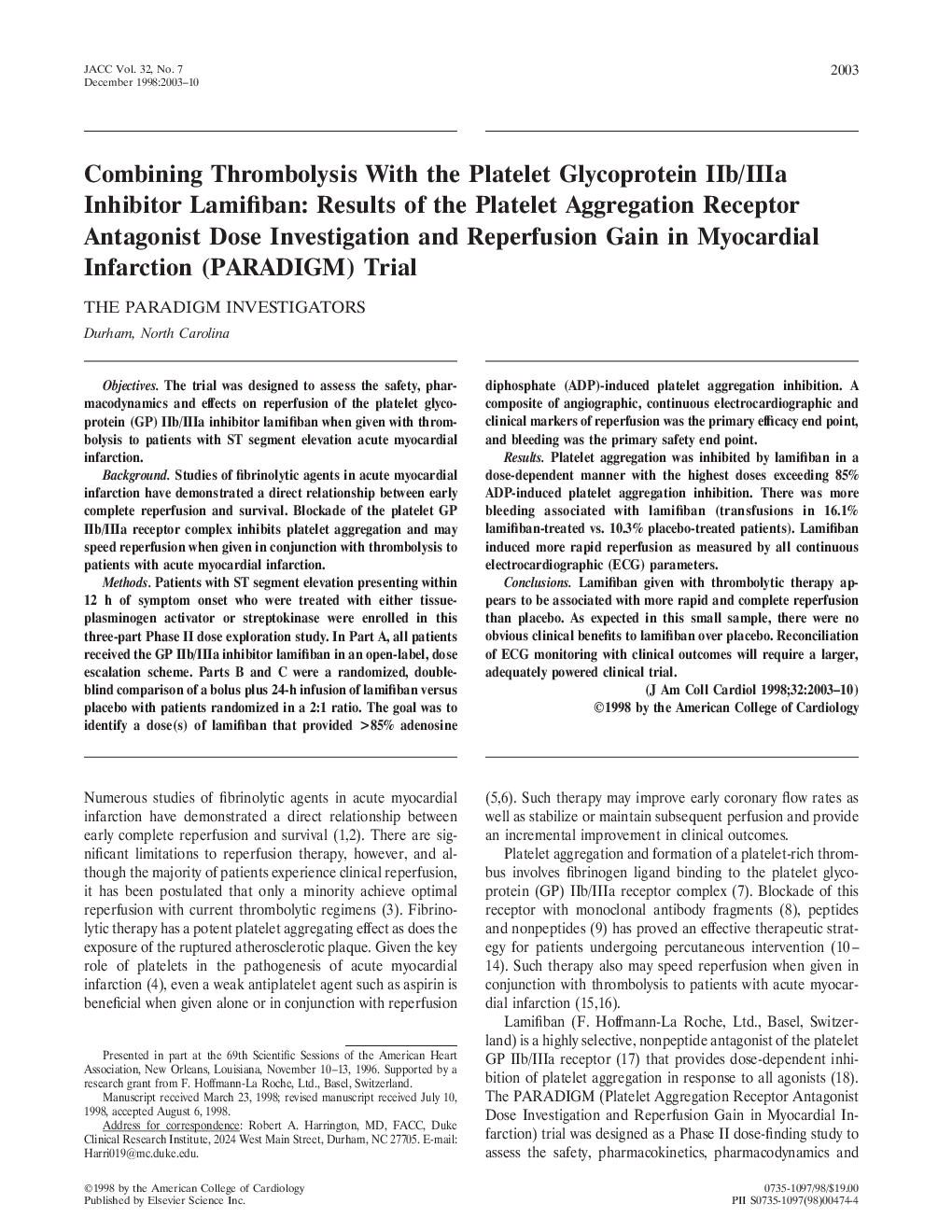| Article ID | Journal | Published Year | Pages | File Type |
|---|---|---|---|---|
| 2956024 | Journal of the American College of Cardiology | 2010 | 8 Pages |
Objectives. The trial was designed to assess the safety, pharmacodynamics and effects on reperfusion of the platelet glycoprotein (GP) IIb/IIIa inhibitor lamifiban when given with thrombolysis to patients with ST segment elevation acute myocardial infarction.Background. Studies of fibrinolytic agents in acute myocardial infarction have demonstrated a direct relationship between early complete reperfusion and survival. Blockade of the platelet GP IIb/IIIa receptor complex inhibits platelet aggregation and may speed reperfusion when given in conjunction with thrombolysis to patients with acute myocardial infarction.Methods. Patients with ST segment elevation presenting within 12 h of symptom onset who were treated with either tissue-plasminogen activator or streptokinase were enrolled in this three-part Phase II dose exploration study. In Part A, all patients received the GP IIb/IIIa inhibitor lamifiban in an open-label, dose escalation scheme. Parts B and C were a randomized, double-blind comparison of a bolus plus 24-h infusion of lamifiban versus placebo with patients randomized in a 2:1 ratio. The goal was to identify a dose(s) of lamifiban that provided >85% adenosine diphosphate (ADP)-induced platelet aggregation inhibition. A composite of angiographic, continuous electrocardiographic and clinical markers of reperfusion was the primary efficacy end point, and bleeding was the primary safety end point.Results. Platelet aggregation was inhibited by lamifiban in a dose-dependent manner with the highest doses exceeding 85% ADP-induced platelet aggregation inhibition. There was more bleeding associated with lamifiban (transfusions in 16.1% lamifiban-treated vs. 10.3% placebo-treated patients). Lamifiban induced more rapid reperfusion as measured by all continuous electrocardiographic (ECG) parameters.Conclusions. Lamifiban given with thrombolytic therapy appears to be associated with more rapid and complete reperfusion than placebo. As expected in this small sample, there were no obvious clinical benefits to lamifiban over placebo. Reconciliation of ECG monitoring with clinical outcomes will require a larger, adequately powered clinical trial.
